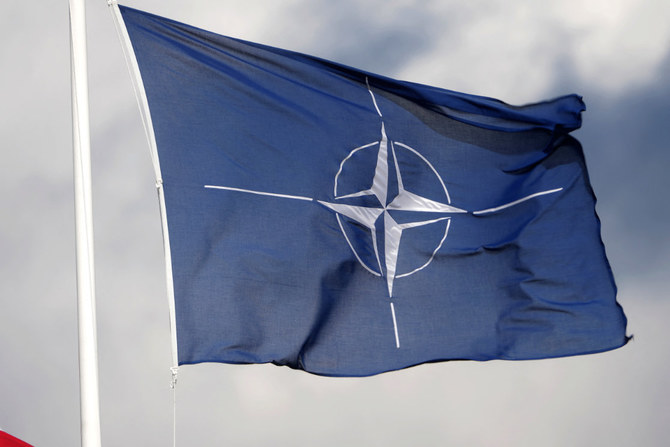Turkiye critical to East-West power balance
Turkiye critical to East-West power balance

Despite the efforts of the Euro-Atlantic community, the Ukrainian crisis gives the impression that it is moving toward a standstill. The US and Germany are doing their best to keep the pressure on Russia, but so far there has been no sight of a breakthrough.
The members of NATO, especially the US, are sending strong messages to Moscow that they will continue to increase the pressure, but it is unclear whether Russia will eventually yield.
Despite the fact that NATO identifies itself as a defensive alliance, there are analysts who believe that it is a US tool to share the responsibility of crises in the world. With the Ukrainian crisis in full swing, the alliance’s solidarity will definitely increase and, as long as the Russian threat hangs over its head, this solidarity is likely to remain.
NATO Secretary-General Jens Stoltenberg last week announced that the alliance has so far delivered to Ukraine enough weapons to equip nine well-trained armored brigades. For good reason, the Ukrainians believe this is less than what they need. Compared to the size of the Russian army, this is only a token effort. The remaining gap has to be filled by the determination and resolve of the Ukrainian troops.
Russia has been shown to have shortcomings in the field of defense, but this does not mean it cannot sustain a prolonged war. Nobody knows what the targets of Russia were at the outset. Moscow’s early narratives gave the impression that it was going to annex Donetsk and Luhansk and stop there, because it claimed there was a strong Russian-speaking minority in these two provinces. According to Ukrainian figures, however, only 38 percent of the people in Luhansk and Donetsk use Russian as their first language. In many other provinces, this percentage is much lower.
After launching a major attack on Feb. 24, 2022, Russia invaded vast swaths of Ukraine and occupied about 27 percent of its territory, but it later had to withdraw from several provinces. The Russian-occupied Ukrainian territories have now been reduced to 17 percent, including Crimea. Expelling Russia from some of these areas, such as Donetsk and Luhansk, may not be easy. The more the war settles down, the more difficult it may be to uproot the Russian forces. Therefore, Russia may prefer to let the present situation fester.
It is unrealistic to presume that Russia is on the threshold of collapse. It covers an immense geography. It has a population of 143 million. It has a huge amount of natural resources. If necessary, it may introduce belt-tightening policies by forcing or persuading the people.
The Turkish-Russian relations may offer some breathing space in NATO-Russia ties, allowing them to avoid suffocation.
Yasar Yakis
Finland’s NATO accession is already complete. Turkiye’s objection to Sweden’s NATO membership will probably be solved one way or another, most likely by Ankara giving in to US pressure. Sweden, with its strong defense industry, will of course become an important asset for the alliance. However, Russia’s unease because of Sweden’s NATO membership — plus Finland’s 1,500 km-long border with Russia — may become a disturbing factor in East-West relations. All these factors will become important in the new European defense architecture.
Tensions are likely to increase in the Black Sea region when the present power balance in the area is reshaped. The former rivalry between East and West may come back to the region. After Romania and Bulgaria became members of NATO in 2004, the balance tilted toward the West. Georgia’s EU membership bid is progressing slowly. If Tbilisi goes as far as joining NATO, Russia’s unease in the Black Sea will further increase.
In the East-West power balance, Turkiye will become critical again because it enjoys a slightly different type of relationship with Russia. It has not taken part in its fellow NATO members’ sanctions on Russia. It has problems with Moscow because of its cooperation in the defense industry with Ukraine. It cooperates with Russia on several other issues, but this raises problems. This is a peculiar situation, but the Turkish-Russian relations may offer some breathing space in NATO-Russia ties, allowing them to avoid suffocation.
The power balance that prevailed in the Black Sea thanks to the Montreux Convention of 1936 was maintained for more than 80 years mainly because of the contributions of Turkiye and Russia. Since Bulgaria and Romania joined NATO, the preponderance of the alliance in the Black Sea has increased. This is yet another factor that has to be reckoned with in the new defense architecture in Europe.
The Russia-Ukraine war will come to an end sooner or later, but only after tens of thousands young men — if not hundreds of thousands — are killed, after millions of civilians suffer all types of hardship, and after extensive damage has been caused to physical infrastructure, mostly in Ukraine but also in parts of Russia.
• Yasar Yakis is a former foreign minister of Turkiye and founding member of the ruling AK Party.
Twitter: @yakis_yasar
Disclaimer: Views expressed by writers in this section are their own and do not necessarily reflect Arab News’ point of view



